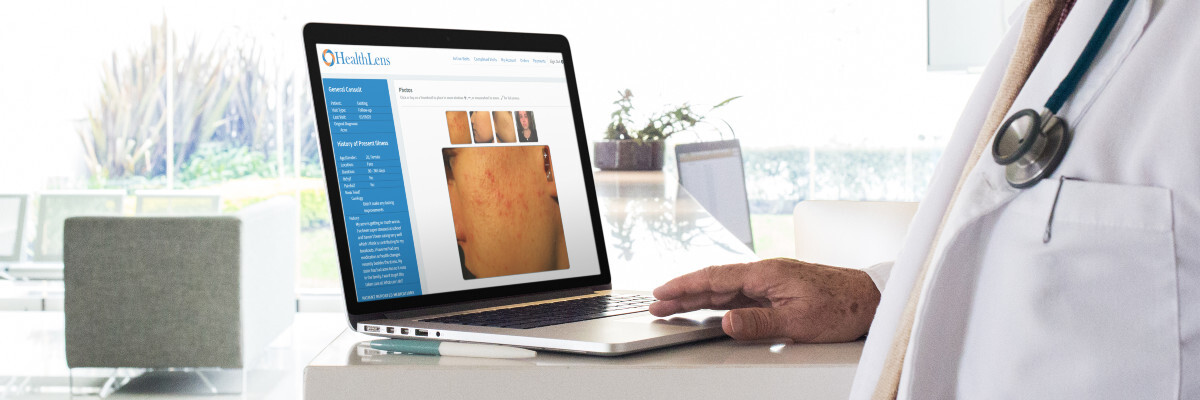HealthLens obtains photos, medical history, and payment from the patient ahead of time so you have everything you need to diagnose the visit when it is convenient for you.
How store-and-forward telehealth works on HealthLens
Step 1 - New Visit Notification
Patients click the “Start Online Visit” button on your website. They complete the HealthLens visit intake form which obtains condition photos, medical history, insurance, and payment. You are notified and can review the visit at your convenience.
Step 2 - Diagnosis & Treatment
Select a diagnosis and then use the patient instruction templates and integrated e-Rx tool to create a treatment plan with just a few clicks. If you have follow-up questions or want to schedule a video call, you can securely message the patient through HealthLens.
Step 3 - Payment & Insurance
After you complete the visit, your billing team immediately receives a visit report with a copy of the patient’s insurance card so they can bill the patient’s plan. You never have to chase down copays or coinsurance because payment for the patient’s responsibility is obtained when the visit is submitted.
Benefits of store-and-forward telehealth
Improved clinical experience
You get the full picture of the patient’s health, literally. Along with uploading photos of their complaint, patients complete a comprehensive intake that documents medical history, previous tried/failed, symptoms, and treatment goals.
Increased patient capacity
Store-and-forward telehealth dramatically increases your patient capacity because there is no scheduling required. Patients can submit a visit any time - day or night. You are notified and can respond at your convenience; whether it’s between office visits, after hours, or during the weekend. HealthLens visits take about 5 minutes to complete, which is less than a quarter of the time needed for live-video.
Reduced overhead costs
HealthLens’ automated patient intake significantly reduces the administrative costs involved in coordinating and billing for a telehealth visit.
Fewer technology barriers
Unlike video, store-and-forward telehealth does not require a high-speed internet connection. This enables more patients to use the service and allows you to provide care when you are away from the office.

